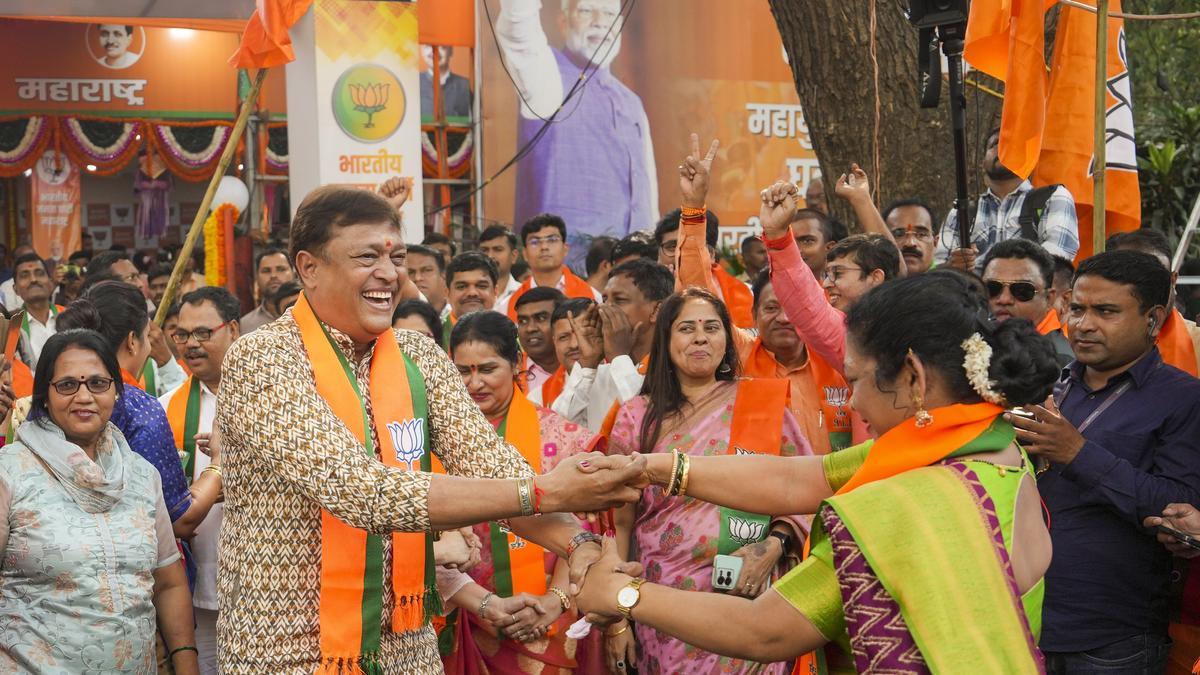
Maharashtra election results 2024: How RSS’ stealth campaign shaped Mahayuti’s victory
The Hindu
RSS played a crucial role in shaping Maharashtra Assembly elections, focusing on urban voter mobilization and supporting BJP-led Mahayuti alliance.
The Rashtriya Swayamsevak Sangh (RSS), the ideological backbone of the Bharatiya Janata Party (BJP), played a pivotal role in shaping the outcome of the recently concluded Maharashtra Assembly elections. Unlike its relatively subdued involvement in Lok Sabha polls, the RSS adopted a more proactive approach this time, reflecting the stakes at hand.
Maharashtra election results 2024 LIVE updates: Learnt from Lok Sabha failure, says Ajit Pawar in Mahayuti press conference
Maharashtra, where the RSS headquarters is in Nagpur — the State’s second capital — holds symbolic and strategic importance for the organisation. Losing this State would have been a major blow to its influence and ideological objectives.
While the Mahayuti, the alliance of the BJP and its partners, Chief Minister Eknath Shinde’s Shiv Sena, and ideological contrast Ajit Pawar’s Nationalist Congress Party (NCP) emerged victorious, the RSS’s contribution went far beyond symbolic support. Staying true to its tradition of operating behind the scenes, the Sangh focussed on silent yet effective voter mobilisation efforts, particularly in urban centres such as Mumbai, Pune, and Nagpur.
“The RSS recognised the importance of ensuring high voter turnout in cities where its influence is deeply rooted,” said a senior RSS functionary. “Our role was to create awareness and encourage voters to come out and make their voice heard.”
This involved extensive groundwork by RSS cadres, who leveraged their network of shakhas (branches) and affiliated organisations to reach out to communities at the grassroots level. It also capitalised on its apolitical yet influential image to attract fence-sitters who might not have been swayed by conventional party campaigns. This approach was particularly effective in countering the Opposition’s narrative.
One of the major challenges in urban constituencies is voter apathy, which often skews election outcomes. The RSS, aware of this trend, made it a priority to engage urban voters, stressing on the importance of “stability and development” under the BJP-led government. Through door-to-door campaigns, community meetings, and informal gatherings, the Sangh successfully conveyed its message without overtly associating itself with political campaigning, especially in all the Assembly segments in Nagpur and Pune.

Several principals of government and private schools in Delhi on Tuesday said the Directorate of Education (DoE) circular from a day earlier, directing schools to conduct classes in ‘hybrid’ mode, had caused confusion regarding day-to-day operations as they did not know how many students would return to school from Wednesday and how would teachers instruct in two modes — online and in person — at once. The DoE circular on Monday had also stated that the option to “exercise online mode of education, wherever available, shall vest with the students and their guardians”. Several schoolteachers also expressed confusion regarding the DoE order. A government schoolteacher said he was unsure of how to cope with the resumption of physical classes, given that the order directing government offices to ensure that 50% of the employees work from home is still in place. On Monday, the Commission for Air Quality Management in the National Capital Region and Adjoining Areas (CAQM) had, on the orders of the Supreme Court, directed schools in Delhi-NCR to shift classes to the hybrid mode, following which the DoE had issued the circular. The court had urged the Centre’s pollution watchdog to consider restarting physical classes due to many students missing out on the mid-day meals and lacking the necessary means to attend classes online. The CAQM had, on November 20, asked schools in Delhi-NCR to shift to the online mode of teaching.










